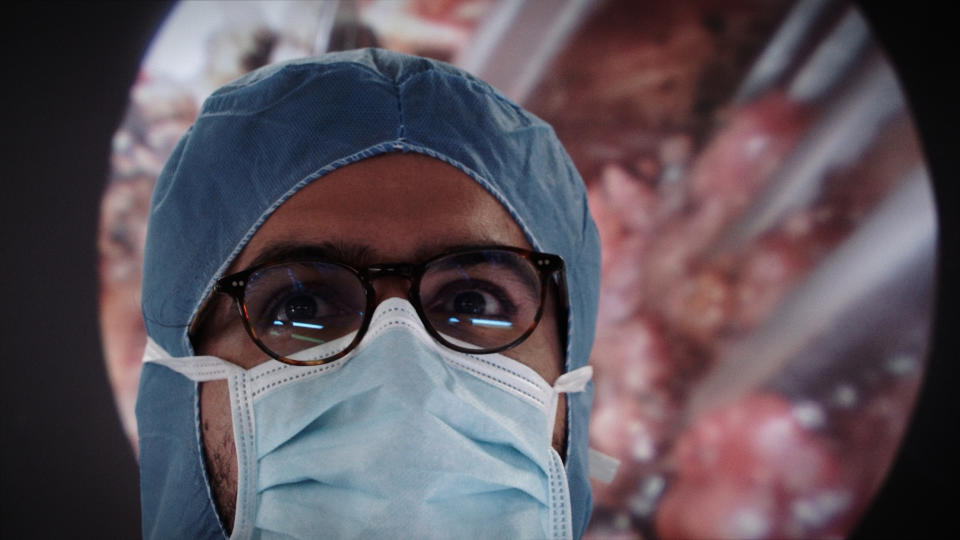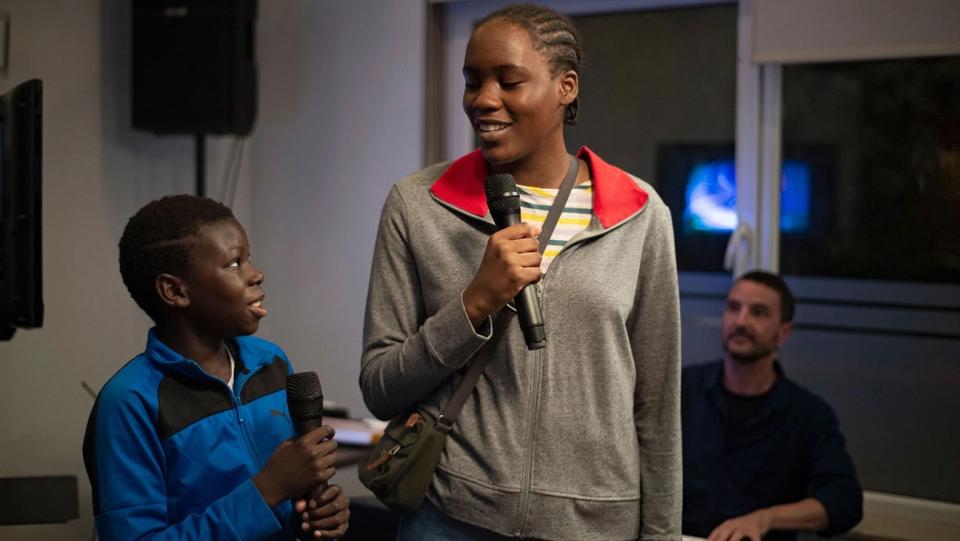Memo to Distributors: Buy These 2022 Cannes Movies

- Oops!Something went wrong.Please try again later.
This year’s Cannes Film Festival may have been punctuated by big titles from returning stars that already have distribution homes — like Ruben Östlund’s Palme d’Or winner “Triangle of Sadness,” David Cronenberg’s “Crimes of the Future” (out this week!), or Claire Denis’ “The Stars at Noon” — and the wide variety of titles that picked up distribution while at the festival, but there are plenty of bright new gems that debuted on the Croisette that are still looking for smart buyers.
As ever, we’re more than happy to hand-pick a variety of films still up for sale (at least, North American sale) and why we think they’d make some shingles very happy indeed. We’ve got known names, new stars, wild stories, and classic dramas to stump for, with plenty of reasons why they are so worthy of purchase.
More from IndieWire
Cannes 2022 Deals: Sideshow and Janus Buy 'Tori and Lokita' in Latest Festival Acquisition
Tribeca 2022: 15 Must-See Festival Films and Events You Can Attend or Stream at Home
As theaters keep looking for new ways to bring back audiences and distributors eye new opportunities to experiment with an evolving arthouse market, we implore buyers to give these Cannes highlights a chance.
“The Dam”
The directorial debut of Paris-based Lebanese artist Ali Cherri is a virtually wordless and entrancing look at the experiences of bricklayer Maher (Maher el Khair, a professional bricklayer and nonprofessional actor) who works at a remote Sundanese river surrounded by the desert. As news reports about civilian protests from the city pipe in through the airwaves, Cheri develops a mesmerizing audiovisual tapestry of mud and water, with the land coming to life around his character as if he’s crafting a benevolent Frankenstein’s monster.
With its silent-cinema approach and a complex look at the way revolutionary spirit can creep into rural life, “The Dam” is a both ambitious and accessible as a parable for individualism on the margins of society. It’s a terrific first feature from a new filmmaking talent that could enjoy a long theatrical life as arthouse audiences clamor for ambitious cinematic experiences they can’t replicate at home. —EK
Sales contact: Indie Sales

Verena Paravel & Lucien Castaing-Taylor
“De Humani Corporis Fabrica”
“Leviathan” directors Lucien Castaing-Taylor and Verena Paravel, the best-known members of the so-called Harvard Sensory Ethnographic Lab, excel at using cameras to see the world in new ways. That impulse reaches sublime (if often icky) heights here, as they probe the intricacies of the human body with such precision that at first the film seems like dare. As the images of magnified blood vessels and brain tissue continue to dominate the screen, they take on a haunting abstract dimension. A cancerous tumor viewed under the microscope in vivid colors looks like a Pollock painting.
While David Cronenberg revels in the potential for the human body to become art, Castaing-Taylor and Paravel show that it’s already there in the parts we have. A haunting rumination on the fragility of existence and a meditative celebration of the blood vessels that connect us all, “De Humani Corpus Fabrica” is obviously a tough sell, but viewers who committed to it at Cannes couldn’t stop talking about it. That’s the mark of a true word of mouth phenomenon, one that could become a breakout arthouse sensation as a result. It would take a daring distributor to make it work, but a little risk can come with high rewards for a cinematic achievement at this level. —EK
Sales contact: Les Films du Losange

Cannes
“The Eight Mountains”
Essentially unfolding like Elena Ferrante’s “My Bearded Friend,” Felix Van Groeningen and Charlotte Vandermeersch’s “The Eight Mountains” tells a sweet and broadly accessible story of male friendship that spans over 30 years, stretches across some of the most picturesque backdrops ever photographed, and centers on two strapping lumberjack types so perversely beautiful that you may not even notice the jaw-dropping scenery behind them. The city mouse is played by “Martin Eden” star Luca Marinelli. The country mouse — the last kid ever born in the dying Italian village where these characters meet as children, and reconnect throughout their lives — is played by Alessandro Borghi.
The story, lovingly and leisurely adapted from Paolo Cognetti’s novel of the same name, offers what Ella Kemp’s IndieWire review described as “a valentine to brotherhood and a shape-shifting tale of self-discovery, resilience, nature, and love that’s platonic in nature nut somehow more steely than any rock you could climb.” This is solid, middle-brow, lovely to look at arthouse fare, and a smart distributor could position it as a plein air respite from a crop of Oscar contenders that will likely reflect the grim state of the world that produced them. —DE
Sales contact: Vision Distribution
“Rodeo”
Lola Quivoron doesn’t pull any punches for her feature debut: “Rodeo” is a heart-pounding, wholly unique ride, punctuated by incredible stunt work from star Julie Ledru and the rest of the cast — shepherded by veteran stunt expert Mathieu Lardot, who has worked on everything from the Jason Bourne franchise to the “Mission: Impossible” films — and possessed by a kinetic, high-energy drive. Now this is the kind of film you churn out when you’re a cut above the rest.
And, yes, some crafty Hollywood executive will likely pitch an Americanized version as one part “Titane,” one part “Fast and Furious,” and one part “Girlhood,” but Quivoron’s film is so singular, so thrilling, that it will hopefully escape without being sucked into the remake machine. So too should Quivoron, who uses her first film to not only deliver thrills, a worldview, and a deep dive into a wild world, but also shows off her ability to scoop up fresh talent and build an entire story around them. She’s one to watch, and “Rodeo” deserves to be seen first. —KE
Sales contact: Les Films du Losange
“Smoking Causes Coughing”
French cinematic prankster Quentin Dupieux (who also goes by the DJ name Mr. Oizu) delivers another satisfying dose of his “WTF LOL” aesthetic with this discursive look at a group of cheesy superheroes forced by their rodent boss to go on a work retreat. Yeah, you read that right: A guy in a rat suit bosses around the French version of the Power Rangers, and that’s the most normal part of this ridiculous movie that only gets more entertaining as it moves along.
Once on break from the job, the group begin swapping stories as the movie devolves into an anthology of surreal short films and keeps losing its way. By the time a cooked fish starts adding its own story to the table, you’re either onboard with this movie’s loopy sensibilities or totally lost. But that’s the magic of Dupieux (“Wrong,” “Rubber”), who make movies designed to befuddle and amuse you at the same time, and “Smoking Causes Coughing” proves this task is always a great time. The movie seems like a surefire VOD bet that audiences will stumble upon and adore as a great discovery, as all Dupieux movies have been in the past. —EK
Sales contact: Gaumont

“Tori and Lokita”
The Dardenne brothers may not be money in the bank for U.S. distributors — the Belgian auteurs’ signature brand of hardscrabble neo-realism tends to fall a few fighter jets short of “Maverick” numbers — but their work is essential to the lifeblood of contemporary world cinema, and their furious new film so lucidly crystallizes the helpless anger that people feel right now that it could well become one of the year’s defining releases (with some legitimate awards potential to sweeten the pot). Like most of the duo’s work, “Tori and Lokita” leverages the irreducible nature of human dignity against the ever-worsening apathy of human civilization.
Like much of their work, the film’s threadbare story — about two African-born “unaccompanied foreign minors” struggling to make a home for themselves in an apathetic Europe — hinges on effectively parentless children whose need for support leads them towards danger. And like the best of their work, which this sobering return to form represents from its curious first shot to its furious last beat, its premise pulls tighter until even the simplest actions are endowed with breathless intensity. That “Tori and Lokita” points so much of its anger towards the audience only makes it more damning and essential, and shouldn’t discourage a high-end distributor to throw its weight behind a movie that will resonate long after the end of its theatrical run. —DE
Sales contact: Wild Bunch
Best of IndieWire
10 LGBTQ Film and TV Creators on the Rise, from Jerrod Carmichael to Isabel Sandoval
A History of Unsimulated Sex Scenes in Cannes Films, from 'Mektoub' to 'Antichrist'
20 Controversial Film and TV Book Adaptations That Rankled Their Audiences and Authors
Sign up for Indiewire's Newsletter. For the latest news, follow us on Facebook, Twitter, and Instagram.

